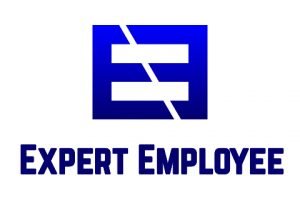This post contains affiliate links.
You are in your morning routine, drinking your coffee and scanning the latest job postings when you see it … the opportunity you’ve been working towards. A great position with an awesome company with responsibilities that match your talents and career goals. You upload your resume, complete the application, and hit submit before your coffee even cools. Then it hits you. In your excitement you completely forgot about your vacation that is coming up. The pit in your stomach grows when you remember you only purchased basic travel insurance when you booked your travel package months ago.
On your application and during screening rounds answer ‘When are you available?’ with an accurate start date. You don’t need to bring up your planned vacation before the final round of interviews. Discuss your vacation once the hiring team signals serious interest in you – ideally after you receive a job offer.

Use this general rule as a starting point and adjust for your specific situation. You want to start a new job with a strong positive impression and not as the person who is always looking for special treatment. Whenever you know in advance that you require time off it is always best to have it prearranged before you are hired. We spoke with recruiters and hiring managers to develop more specific guidance based on how long of vacation and how soon you need time off after you start.
| Days Off | Timeframe from Start Date | Risk to Job Offer | Comments |
|---|---|---|---|
| <5 | Within 2 months | Very Low | Usually OK even if not communicated before accepting offer |
| <5 | 3rd month or later | Negligible | Only necessary to communicate can’t-miss events before starting work |
| 5-10 | Within 2 months | Low | May interfere with training |
| 5-10 | 3rd month or later | Very Low | Usually safe to discuss during interview with hiring manager |
| >10 | Within 2 months | High | Avoid this scenario, instead set your available start date for after you return from vacation |
| >10 | 3rd month or later | Medium | More than two weeks off (16 consecutive days) is a significant request even for established employees |
About the worst thing you could do is get to your new job and then during your first day say to your boss ‘Oh by the way, I’m going to need these days off, sorry I didn’t get a chance to bring it up sooner’. In the best case scenario, your boss can accommodate your request but even then your boss will start to question your trustworthiness if you honestly forgot such an important item. Your boss is likely to feel manipulated and if your request is rejected it puts you in a difficult spot. You either give up your vacation or if you take the days then you open yourself to disciplinary action.
When you discuss your required days off during the hiring process, you are in a much better position. Even as a new employee it is OK to be away for planned trips or special events – it happens frequently and employers expect it to a certain level. You can avoid all the potential drama later by being professional and having the discussion with HR or your hiring manager. In the rare event that the company balks at your request, you still have the option to thank them for their consideration and keep the status quo with your current position and take your vacation.
Should I Mention a Planned Vacation in an Interview?
The ideal time to bring up your vacation is after you receive the job offer, when the company has committed to you as their first choice but before you have accepted their offer. Usually your HR contact will inform you over the phone, followed by a formal offer letter by email. During these conversations is the natural time to bring up your planned vacation. ‘Thank you for the offer, I’m excited about the opportunity to grow my career at XYZ company. As we decide on all the details I need to communicate a vacation I have already purchased. I will need to be off work starting on [date] and returning to work [date]‘.
Expert Tip: Always be forthright when asked a direct question during the interview process. Don’t hide your vacation or be misleading because that can negatively affect your relationship with your future coworkers. An easy way to answer is simply ‘I can start work four weeks after I accept the job offer, and I will also need xxx weeks off in October for a previous commitment’.

If your vacation is within 4-8 weeks after you receive the job offer then you may have the best-case scenario. You accept the job offer and turn in notice at your current employer with your last day before your vacation. Then start your new job after you return.
Vacation Length: One to Five Days
Consider this scenario: A friend is getting married and you need four-day weekend (Fri-Sat-Sun-Mon) to attend their wedding a couple months after you start. You will have enough paid time off accrued by then to cover the days so you decide not to bring it up until after you start work.
Expert Tip: This should only be a minor inconvenience to the hiring team but you still need to bring it up during the hiring process. Even if you think you will have the PTO hours to cover, remember that PTO requests are not guaranteed to be approved. New hires won’t get first choice of time off, especially during high-demand holiday periods. The wedding dates are not going to move so you should communicate you need those days off before you are hired.
Vacation Length: Five to Ten Days (1-2 Weeks)
The main concern with a one to two week trip during the first couple months at your new job is that it will interfere with your training. Even if there is not a set training program, most managers will have at least a rough roadmap of the progress they expect to see from new hires. In some cases, there will be mandatory classes to attend or required certifications.
The key here is to avoid surprises – your manager is probably not penciling your name into training schedules before you have accepted the position so you need to bring it up during the last round of interviews. The good news is that you won’t be a vital part of the operation just yet so the main blocker is working around any training conflicts.
Usually when your vacation is after the first couple of months it becomes easier to easier to manage. You will be contributing to the team and have responsibilities that need to be covered but there is also more time to make coverage adjustments.
Vacation Length: More than Ten Days
In the US work culture, taking more than two consecutive weeks off is a rare event, even for established employees. The average employee receives 10 days of PTO their first year, increasing to 15 days after they have achieved five years of service (source). Unfortunately, Americans took on average only 17.2 vacation days total in 2018 and that was the high point since 2010 (source).

This doesn’t mean you should give up on your nice long, relaxing vacation, but expect a reaction when make the request. Most likely it will be a raised eyebrow with a side of mild jealousy but how they receive your request can be very telling about the real work culture. Enthusiastic support lets you know that your boss values employee mental health and boundaries. If they don’t take it in stride it tells you that vacations of that length are not normal with this company and it may be your last one for awhile.
What to Expect When Bringing Up a Planned Vacation During the Hiring Process
- Expect to discuss the details. Be prepared with the specific dates you need off. Giving the reason why can be very helpful if you are comfortable – nobody will deny ‘I need these days off for my sister’s wedding’. If you prefer not to share why you need the time off, be prepared with ‘I need these days off for previous commitments’ so it doesn’t get awkward.
- Expect to use all your available PTO. Applicable labor laws and company policy will determine the specifics, but you will probably be required to consume all your accrued PTO and the remaining hours will be unpaid. You can ask for all of your pre-approved days to be unpaid (a common request to preserve what little PTO is accrued when you first start) but this may not be allowed.
- Expect the company to delay your start date. If you are asking for significant time off during the first one or two months the company may decide a better option is to simply push your start date to after your vacation ends.
What Not to Do When Bringing Up Your Planned Vacation
- Don’t include frivolous days in your request. The first 90 days of your new job are vitally important to establish your reputation. Even if it was difficult to get that appointment for the cable guy to install an upgrade, you should reschedule so that it doesn’t interfere with work. You don’t have to share the reason behind every day off but if it comes out you can expect it will reflect poorly on your decision.
- Don’t use days off as a negotiating tactic. If you are only requesting days you truly need, there is nothing to really negotiate so don’t present it as optional. Simply state ‘I need these days off’ and provide the details.
- Don’t stop at verbal agreement. As with any important part of the hiring negotiations, you should get it in writing so you can reference it later. With several weeks between interviewing, accepting, and finally starting your new job there is plenty of time for people to forget or even change roles. After discussing over the phone and reaching an agreement, summarize the details in an email and say thank you.
- Don’t assume HR informed your boss. During the hiring process you will interview with the hiring manager and their team, but most of your interactions will be with Human Resources until you complete the onboarding process. In a perfect world everyone would communicate smoothly but in real life people get busy and things get missed. Don’t assume that HR let your new boss know about your time off requirements. Copy your boss on your email response to HR thanking them for the approval and remind your boss during your first couple of days at work.
- Don’t be surprised if there is no reaction. You might build this up in your mind as a major blocker that could prevent you from getting hired – this is rarely the case. Staffing is not easy and a good candidate is absolutely worth flexibility with planned vacations.
How do I Extend My Start Date for My New Job?

Life happens. Despite our best intentions our plans don’t always work out the way we hoped. If you have a major new development after deciding on a start date you need to reach out to your primary contact at the company, usually a member of the HR department. A phone call is the best method for clear communication – they can hear the emotion in your voice and you can immediately answer questions.
If you have a good reason for extending your start date, a family health crisis for example, then it probably won’t be an issue.
What shows up on a background check? Answer this and more with our insights on pre-employment background checks to make informed career decisions.
